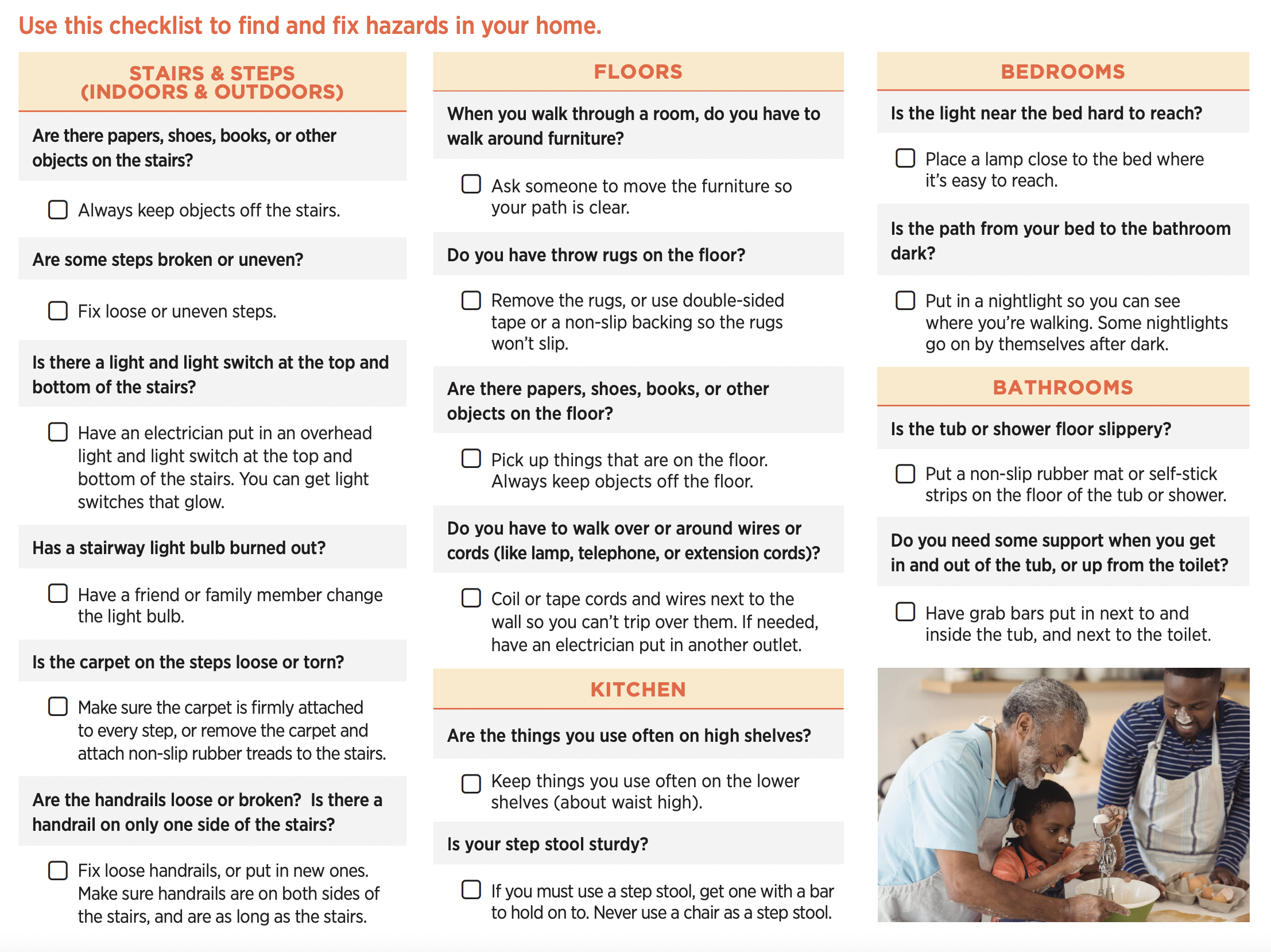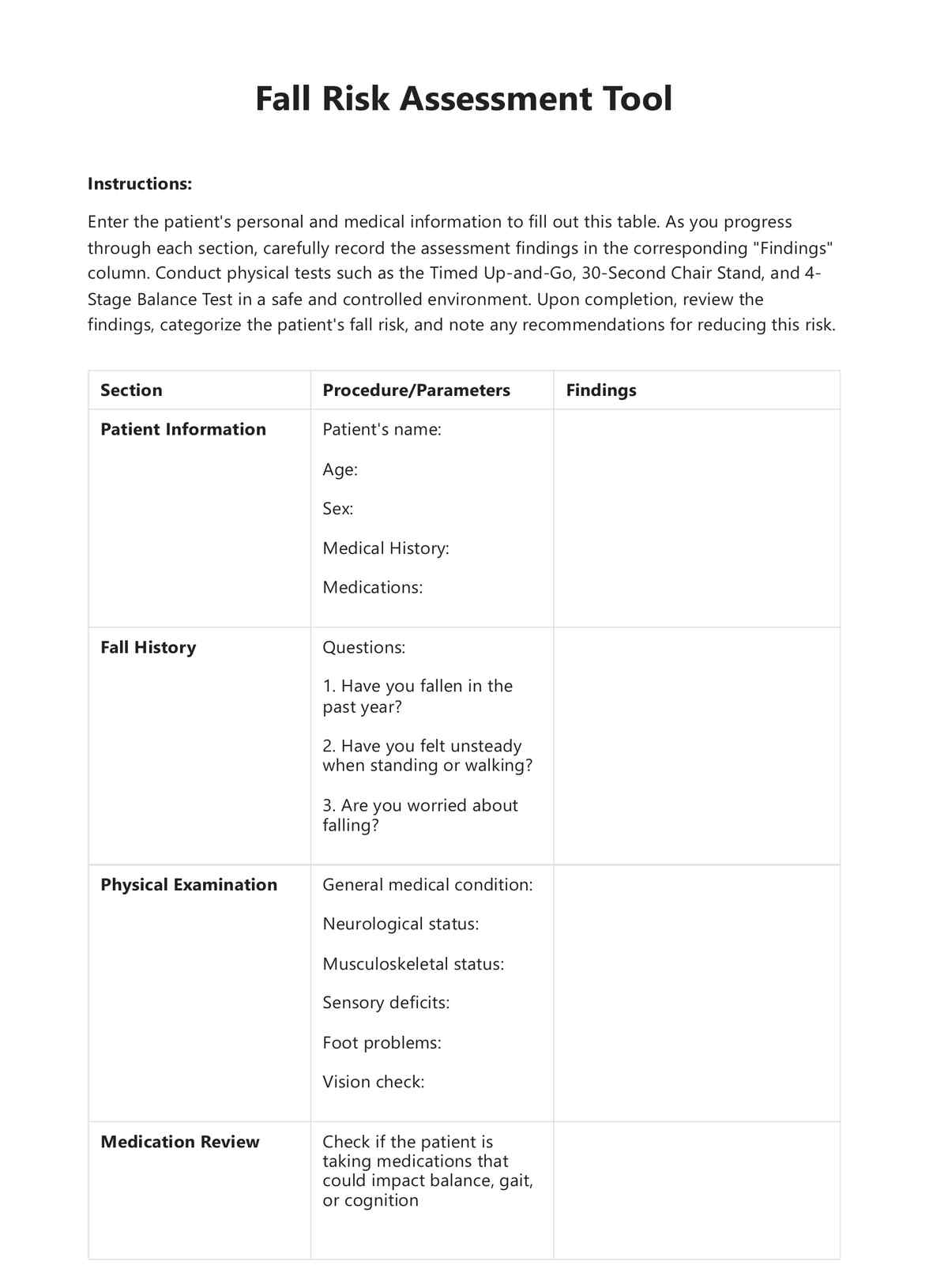Some Known Questions About Dementia Fall Risk.
Table of ContentsDementia Fall Risk Can Be Fun For EveryoneThe Basic Principles Of Dementia Fall Risk Some Known Incorrect Statements About Dementia Fall Risk Dementia Fall Risk - Truths6 Simple Techniques For Dementia Fall Risk
Examining autumn threat helps the entire healthcare team create a safer environment for each and every client. Ensure that there is an assigned location in your medical charting system where team can document/reference ratings and document relevant notes associated with fall avoidance. The Johns Hopkins Fall Risk Evaluation Tool is among numerous tools your personnel can use to help protect against damaging clinical events.Person falls in hospitals are common and devastating negative events that linger despite years of initiative to reduce them. Improving communication throughout the examining nurse, care team, person, and patient's most entailed friends and family may reinforce loss prevention efforts. A group at Brigham and Female's Healthcare facility in Boston, Massachusetts, looked for to establish a standard loss avoidance program that centered around enhanced communication and patient and household interaction.

The advancement team stressed that successful implementation depends on person and staff buy-in, assimilation of the program into existing operations, and fidelity to program procedures. The group noted that they are grappling with how to make sure continuity in program application throughout durations of situation. Throughout the COVID-19 pandemic, for example, a rise in inpatient drops was linked with restrictions in individual involvement together with constraints on visitation.
Some Ideas on Dementia Fall Risk You Should Know
These events are normally thought about avoidable. To apply the intervention, companies need the following: Accessibility to Fall suggestions resources Autumn TIPS training and retraining for nursing and non-nursing staff, consisting of brand-new nurses Nursing workflows that permit patient and household engagement to conduct the drops analysis, guarantee use of the avoidance strategy, and conduct patient-level audits.
The outcomes can be very destructive, typically speeding up person decline and creating longer medical facility remains. One research approximated keeps enhanced an additional 12 in-patient days after an individual autumn. The Autumn TIPS Program is based upon appealing clients and their family/loved ones throughout three main procedures: analysis, individualized preventative interventions, and auditing to guarantee that individuals are involved in the three-step fall avoidance process.
The patient analysis is based on the Morse Autumn Range, which is a verified fall threat assessment device for in-patient hospital setups. The range consists of the 6 most usual reasons individuals in health centers drop: the client fall background, risky problems (including polypharmacy), usage of IVs and various other external gadgets, mental status, stride, and wheelchair.
Each threat element relate to several actionable evidence-based interventions. The nurse develops a strategy that includes the treatments and shows up to the treatment group, person, and household on a laminated poster or printed visual aid. Nurses develop the plan while meeting the client and the individual's family members.
Getting The Dementia Fall Risk To Work
The poster acts as an interaction tool with various other participants of the client's care team. Dementia Fall Risk. The audit component of the program consists of analyzing the individual's expertise of their risk variables and avoidance plan at the device and healthcare facility levels. Nurse champs perform at the very least 5 private meetings a month with individuals and their family members to look for understanding of the fall prevention plan

An approximated 30% of these this contact form falls result in injuries, which can range in seriousness. Unlike other damaging events that call for a standard scientific action, fall avoidance depends highly on the needs of the person. Including the input of people who know the individual ideal allows for better modification. This strategy has actually verified to be much more effective than loss prevention programs that are based largely on the production of a risk rating and/or are not customizable.
Dementia Fall Risk Fundamentals Explained

Based upon bookkeeping outcomes, one website had 86% compliance and two websites had over 95% compliance. A cost-benefit evaluation of the Autumn ideas program in 8 health centers approximated that the program cost $0.88 per person to implement and resulted in financial savings of $8,500 per 1000 patient-days in straight expenses connected to the prevention of 567 tips over three years and eight months.
According to the technology team, organizations curious about executing the program ought to perform a readiness assessment and falls prevention gaps evaluation. 8 Furthermore, organizations need to get more guarantee the required infrastructure and workflows for application and create an execution strategy. If one exists, the organization's Fall Prevention Job Force ought to be associated with planning.
How Dementia Fall Risk can Save You Time, Stress, and Money.
To begin, organizations should ensure conclusion of training modules by registered nurses and nursing assistants - Dementia Fall Risk. Hospital team ought to analyze, based upon the needs of a medical facility, whether to make use of a digital health and wellness record printout or paper version of the autumn prevention strategy. Carrying out groups ought to recruit and educate registered nurse champions and establish processes for bookkeeping and reporting on fall data
Team need to be entailed in the procedure of redesigning the workflow to involve clients and family in the analysis and avoidance plan procedure. Equipment ought to remain in place so that units can comprehend why an autumn happened and remediate the cause. Much more specifically, registered nurses ought useful content to have channels to provide ongoing comments to both personnel and system management so they can readjust and boost fall avoidance workflows and communicate systemic troubles.